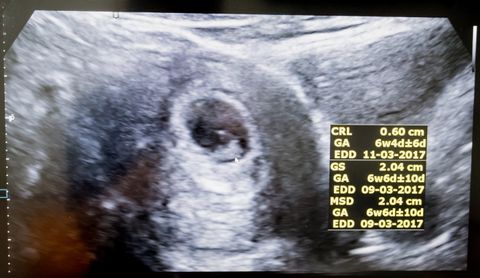When Does The Fetus Have A Heartbeat - We all know that the development of a fetus inside the womb is a fascinating process, and one of the most significant milestones is the heartbeat. But, do we really know what it means when we say "fetal heartbeat"? In this post, we will explore what is a fetal heartbeat, when does it start, and what are some of the things you can do to ensure a healthy pregnancy.
What is a fetal heartbeat?
The fetal heartbeat is the sound of the baby's heartbeat inside the womb. It is a sign of a healthy pregnancy and indicates that the baby's heart is growing and developing as it should be. But, contrary to what some people believe, it is not an actual heartbeat, at least not in the traditional sense.
The science behind fetal heartbeat
When we talk about fetal heartbeat, we are actually referring to the sound made by the beating of the baby's heart, which is amplified by the mother's abdominal wall. At around six weeks of pregnancy, the baby's heart starts beating, but it is not yet a fully formed heart. At this stage, what the baby has is a structure called the fetal pole. The fetal pole contains the yolk sac, which nourishes the baby until the placenta takes over this role, and the embryo, which eventually becomes the fetus. It is the movement of blood through the fetal pole that produces the sound we call fetal heartbeat.

When does the fetal heartbeat start?
The fetal heartbeat generally starts around six weeks of pregnancy. However, it is not always possible to detect the fetal heartbeat at this stage, especially if you have irregular periods or if your pregnancy dates are not accurate. In some cases, it may take a few more weeks before the fetal heartbeat becomes audible. By 10 to 12 weeks of pregnancy, the fetal heartbeat can typically be heard using a fetal Doppler device, which is a handheld ultrasound device used by healthcare professionals to monitor the baby's health.
Why is the fetal heartbeat important?
The fetal heartbeat is an essential indicator of the baby's health and development. It can help detect abnormalities in the baby's heart rate and rhythm, which may indicate an underlying health problem. Monitoring the fetal heartbeat throughout pregnancy is, therefore, an essential part of prenatal care. In addition to monitoring the fetal heartbeat, ultrasounds, and other tests may be used to assess the baby's growth, development, and overall health.

How to ensure a healthy pregnancy
Eat a balanced diet
A healthy diet is essential for the baby's growth and development. Make sure you eat plenty of fruits, vegetables, whole grains, lean proteins, and healthy fats. Avoid processed foods, sugary drinks, and high-fat foods.
Stay active
Exercise is an essential part of a healthy pregnancy. It can help reduce the risk of gestational diabetes, high blood pressure, and other complications. Talk to your healthcare provider about what kind of exercise is safe for you and your baby.
Get regular prenatal care
Prenatal care is critical to a healthy pregnancy. Regular visits to your healthcare provider can help detect and treat any complications early on. It can also provide you with the information and support you need to make informed decisions about your pregnancy and childbirth.

Stay hydrated
Drinking plenty of water is crucial during pregnancy. It can help prevent dehydration, which can lead to complications such as preterm labor and low birth weight. Aim to drink at least eight glasses of water a day, and avoid sugary drinks such as soda and fruit juices.
Get enough rest
Sleep is essential for a healthy pregnancy. It can help reduce stress, which can have an impact on the baby's development. Aim for seven to eight hours of sleep a night, and try to establish a regular sleep routine.
Reduce stress
Stress can have a detrimental effect on both the mother and the baby. Find ways to manage stress and take care of your emotional well-being. Some ways to reduce stress may include meditation, yoga, or talking to a therapist or counselor.

Avoid harmful substances
Avoid smoking, alcohol, and drugs during pregnancy, as they can have a harmful effect on the baby's development. If you need help quitting, talk to your healthcare provider, or seek support from a quitline or support group.
Stay informed
Stay up to date with the latest information about pregnancy and childbirth. Read books, attend prenatal classes, and talk to your healthcare provider about any concerns or questions you may have. Knowledge is power, and being informed can help you make the best decisions for you and your baby.
Final thoughts
The fetal heartbeat is an essential indicator of the baby's health and development. It is a sign that the baby's heart is growing and developing as it should be. Monitoring the fetal heartbeat throughout pregnancy is, therefore, an essential part of prenatal care. While there are no guarantees, following these tips and guidelines can help ensure a healthy pregnancy and a healthy baby. Remember to talk to your healthcare provider about any concerns or questions you may have about your pregnancy.
View more articles about When Does The Fetus Have A Heartbeat